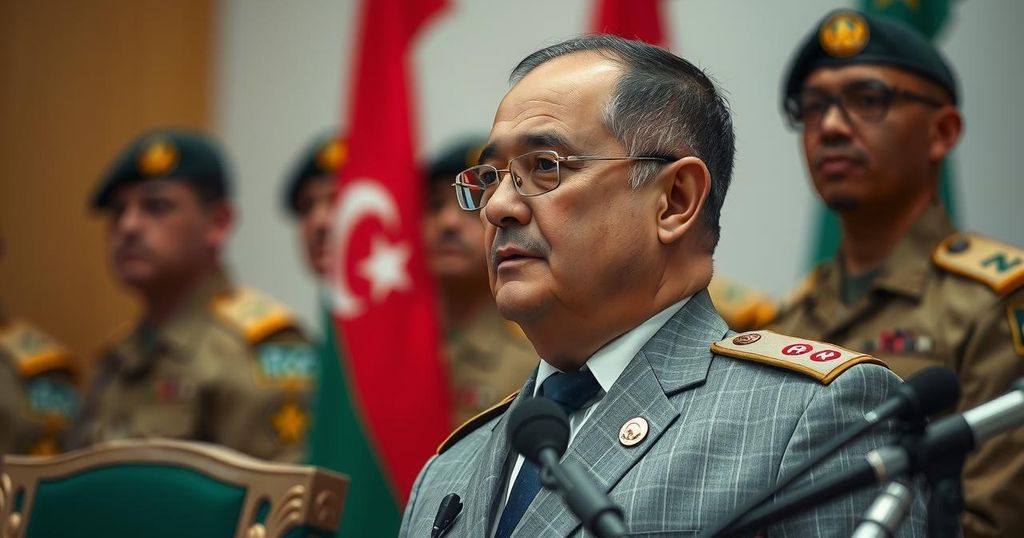Libyan PM Abdul Hamid Dabaiba Opposes Russian Military Reinforcement in Libya

Libyan Prime Minister Abdul Hamid Dabaiba has opposed Russia’s military reinforcement in eastern Libya, asserting that the country should not serve as a battleground for international conflict. He expressed concerns over potential escalations due to Russian arms transfers and has communicated with the Russian ambassador for clarification. Amid U.S. economic pressures related to corruption, Dabaiba’s stance signals a possible shift in Libya’s diplomatic strategy as it faces internal and external challenges.
The Prime Minister of Libya’s UN-recognized government, Abdul Hamid Dabaiba, has expressed strong opposition to Russia’s intention to reinforce its military presence in eastern Libya. He asserted that Libya should not become a battleground for international conflicts, emphasizing concerns that the country could be drawn into geopolitical struggles. Dabaiba’s statements come amid reports of Russia transferring military resources from its bases in Syria to support military commander Khalifa Haftar in eastern Libya.
Dabaiba criticized any movement of Russian arms into Libya, stating that such actions would exacerbate existing internal crises and hinder efforts for stability. He indicated that he has reached out to the Russian ambassador to seek clarification on these military movements. Analysts regard Dabaiba’s comments as significant, suggesting they may be intended to garner favor with American authorities amid mounting pressure due to internal corruption.
In recent developments, the U.S. has imposed stringent economic measures on Libyan factions over corruption issues, which have raised alarms concerning the management of the country’s oil revenue. Allegations of oil smuggling and financial ties to Russia have surfaced, prompting concerns about accountability and transparency within the Libyan financial system. With Russia’s grip on Syria facing challenges after the fall of the Assad regime, the future of its military strategy in both Syria and Libya remains uncertain.
Reports indicate an increase in Russian military supplies in Libya, underscoring the region’s strategic importance to Moscow. The evolving dynamics in both countries could reshape the nature of foreign involvement in Libya, as the country continues to grapple with its persistent internal divisions.
Since the fall of Muammar Gaddafi in 2011, Libya has been embroiled in conflicts that have led to a fractured political landscape. The Tripoli-based government, recognized by the UN, struggles against rival factions primarily led by military commander Khalifa Haftar, who has received support from foreign powers including Russia. The recent developments involving increased Russian military presence in Libya coincide with geopolitical shifts in the region, particularly the aftermath of the Syrian conflict. Libya’s significance as a nexus for international influence continues to rise, as foreign governments vie for control and access to its resources.
Abdul Hamid Dabaiba’s denunciation of Russia’s military maneuvers in Libya reveals the complexities of foreign involvement in the conflict-ridden nation. As the U.S. applies pressures over corruption, the Libyan government’s stance against foreign arms influence may indicate a push for sovereignty amid volatile geopolitical engagements. The unfolding situation poses significant implications for both Libya’s internal cohesion and its relations with global powers, underscoring the importance of maintaining a balanced diplomatic approach.
Original Source: www.theguardian.com







